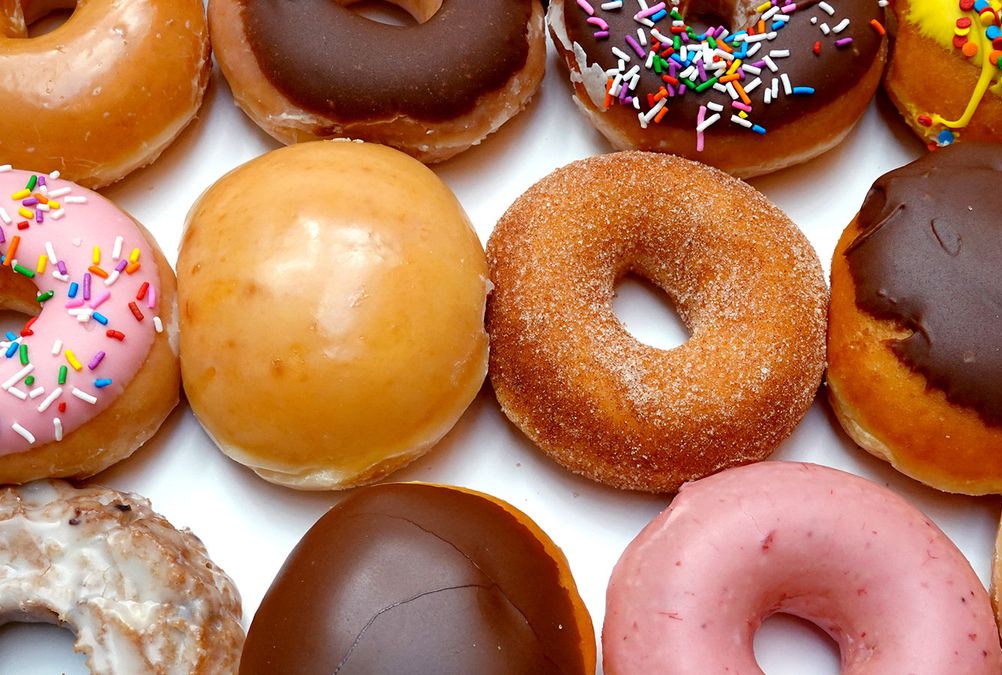
Yearly hundreds of thousands of Individuals attempt to reduce down on ultra-processed meals — industrial formulations which might be usually excessive in added fats, refined carbohydrates or each. Assume cookies, truffles, potato chips and pizza.
For a lot of, the need to alter what they eat is triggered by issues about doubtlessly life-threatening well being situations, like diabetes and coronary heart illness. The affect of weight loss plan on well being isn’t a small downside. The truth is, a latest multidisciplinary fee of 37 main scientists from across the globe recognized unhealthy diets as a better threat to human well being than unsafe intercourse and alcohol, drug and tobacco use mixed.
Many individuals know that the majority ultra-processed meals should not wholesome. However the objective of slicing down on them might be so difficult that almost all of those makes an attempt fail. Why?
In my Meals and Dependancy Science and Therapy Lab on the College of Michigan, my colleagues and I are investigating one largely neglected issue: These ultra-processed meals could also be addictive, sharing extra in frequent with tobacco merchandise than with complete meals like apples or beans.
Hooked on Extremely-processed Meals
I am a medical psychologist who research habit science, weight problems and disordered consuming. Throughout my coaching at Yale College, it grew to become clear to me that many individuals had been exhibiting traditional indicators of habit of their relationship with ultra-processed meals — issues like lack of management over consumption, intense cravings and an incapability to chop down within the face of unfavorable penalties.
So my colleagues and I created the Yale Meals Dependancy Scale. It is a measure that applies the American Psychiatric Affiliation standards used to diagnose different addictive problems to determine individuals who could also be hooked on ultra-processed meals.
Primarily based on our present estimates, 15 % of Individuals meet the brink for meals habit, which is related to diet-related illness, weight problems and poorer high quality of life. This prevalence is remarkably according to that of addictions to different authorized and accessible substances. For example, 14 % of individuals within the U.S. meet the standards to be recognized with alcohol use problems.
“”
Some meals are completely formulated to be irresistible.
Jakub Porzycki/NurPhoto/Getty Photos
It’s clear from our analysis that folks don’t expertise this addictive pull from all meals. Extremely-processed meals which have artificially excessive ranges of fats and refined carbohydrates like sugar and white flour are people who folks eat addictively. For instance, chocolate, ice cream, french fries, pizza and cookies are a few of the meals that folks discover most addictive. Not surprisingly, folks report that they are not possible to lose management consuming broccoli, beans and cucumbers.
However can these ultra-processed meals actually be thought-about addictive? Or are folks simply overindulging in one thing they like? To assist us reply these questions, my colleagues and I’ve turned to one of many final large debates in habit science — whether or not tobacco is addictive.
The Case That You Might be Hooked on Tobacco
The concept that tobacco was addictive was hotly contested for many years.
In distinction to medicine like alcohol and opioids, tobacco merchandise should not intoxicating and permit folks to go about their each day lives whereas utilizing them. Tobacco merchandise additionally do not trigger life-threatening withdrawal signs, in contrast to alcohol and opioids. And there may be no need to interrupt the regulation to entry or use tobacco.
The biggest international tobacco trade firms — colloquially grouped collectively as Huge Tobacco — typically highlighted the distinction between tobacco and "traditional" addictive medicine. Rising doubt about whether or not tobacco was really addictive might assist them keep away from culpability for his or her trade practices and place the blame on customers for his or her option to proceed to smoke.
Nonetheless, in 1988, the surgeon common formally recognized tobacco merchandise as addictive. This report instantly contradicted Huge Tobacco’s stance that tobacco consumption is a matter of shopper alternative pushed by the style and sensory impact of their merchandise.
The surgeon common primarily based a lot of the classification of tobacco merchandise as addictive on their capacity to set off robust, typically irresistible urges to make use of, regardless of a want to give up and within the face of life-threatening well being penalties. One other piece of proof was the power of tobacco merchandise to quickly ship excessive doses of nicotine, which made them extremely reinforcing — customers wish to repeat the conduct that will get them extra of the drug. The ultimate habit criterion tobacco met was its capacity to change temper — rising pleasure, decreasing unfavorable feelings — as a result of nicotine affected the mind.
It is a frequent false impression that the designation was primarily based on the identification of a particular mind response to tobacco. Within the Nineteen Eighties, researchers knew that nicotine had some affect on the mind. However little was identified at the moment about precisely how addictive medicine have an effect on the mind. The truth is, an goal organic marker of habit — like a particular, measurable mind response that confirms somebody is hooked on a substance — nonetheless doesn’t exist.
The surgeon common designating tobacco as an addictive product raised the proportion of the general public who considered smoking as an habit from 37 % in 1980 to 74 % in 2002. The scientific case that cigarettes had been addictive additionally made it more durable for Huge Tobacco to defend their practices.
In 1998, Huge Tobacco misplaced a authorized battle that resulted in them paying billions of {dollars} to states to cowl smoking-related well being prices. The courtroom ordered them to launch secret paperwork that demonstrated they coated up the unhealthy and addictive nature of their merchandise. Moreover, the choice positioned main restrictions on their capacity to market their merchandise, particularly to youth.
Since 1980, using tobacco merchandise within the U.S. drastically declined — an enormous public well being accomplishment.
“”
Meals excessive in sugar and fats have plenty of the identical addictive qualities as nicotine-filled cigarettes.
BSIP/Common Photos Group/Getty Photos
Extremely-processed Meals Examine the Identical Containers
Extremely-processed meals meet all the identical standards that had been used to designate tobacco as addictive.
Tobacco and ultra-processed meals alter temper in an identical manner by rising pleasurable emotions and decreasing unfavorable ones. The excessive ranges of refined carbohydrates and fats in ultra-processed meals powerfully activate reward techniques within the mind.
Extremely-processed meals are extremely reinforcing — they will form your conduct to maintain you coming again for extra. For instance, academics and oldsters use ultra-processed meals to reward good conduct in kids to extend the chance that youngsters will proceed to behave. In rats, researchers have repeatedly discovered that candy tastes are extra reinforcing than even extremely addictive medicine, like cocaine.
The excessive failure charges of diets make it painfully clear that ultra-processed meals can set off robust, typically irresistible urges to make use of regardless of a want to give up. In distinction, nutritious, minimally processed meals like fruits, greens and legumes don’t meet these standards for habit.
Starting within the Nineteen Eighties, the quantity of unhealthy, ultra-processed meals within the U.S. exploded. On the identical time, the tobacco firms Philip Morris and RJ Reynolds had been shopping for up ultra-processed meals and drinks firms, together with Common Meals, Kraft, Nabisco and Kool-Support. Philip Morris and RJ Reynolds took their scientific, advertising and industrial information in designing and promoting addictive, extremely worthwhile tobacco merchandise and utilized it to their ultra-processed meals portfolios. Though these tobacco firms finally bought their meals manufacturers to worldwide meals and beverage conglomerates within the 2000s, that they had already left their stamp on the trendy meals surroundings.
The present societal narrative across the ultra-processed meals that dominate in the present day’s meals surroundings is that individuals who wrestle to eat them moderately — the vast majority of Individuals — are simply weak-willed. It is the identical story used to elucidate why folks could not give up smoking. It ignores the truth that the trade that created cigarettes additionally developed and marketed many of those meals, intentionally working to boost "craveability" and create "heavy customers."
The addictive nature of those ultra-processed meals undermines customers’ free will and well being within the service of earnings. But, there is a vital distinction between tobacco and ultra-processed meals. All of us must eat. Nobody can choose out.
Simply as within the case of tobacco merchandise, it’ll probably take trade regulation to chip away on the recognition of ultra-processed meals and the well being issues that come together with them.
Ashley Gearhardt is an affiliate professor of psychology on the College of Michigan. She receives funding from the Nationwide Institute of Well being and the American Coronary heart Affiliation.
This text is republished from The Dialog beneath a Artistic Commons license. Yow will discover the unique article right here.






















